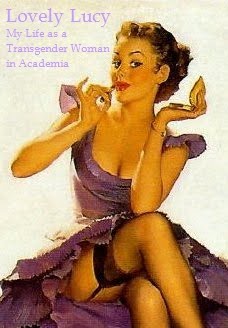After class tonight, I was hungry so I decided to go to the Golden Arches drive thru for a quick bite. I paid at the first window and picked up my food at the second window. As I took the bag, a young, male employee standing behind the person who gave me my food exlaimed "Aw, hell no!" and quickly turned to hide his laughter. I just took my food and drove away.
Most transgender women (and men) have experienced situations like this. I know it was far from the first for me. At this point, individual comments like this one don't upset me that much. They're like water off a duck's back. I differentiate all the little comments and strange looks and laughter from the more direct attacks and challenges to my identity as a transgender woman. But all of these comments still have an effect. The effect is just more cumulative.
I think Michel Foucault can help us better understand the cumulative effect of these negative comments. In Volume One of The History of Sexuality, he argues that secrecy in regards to sex is part of the working of power against sexual expression. "Not only because power imposes secrecy on those whom it dominates, but because it is perhaps just as indispensable to the latter: would they accept it if they did not see it as a mere limit placed on their desire, leaving a measure of freedom - however slight - intact? Power as a pure limit set on freedom is, at least in our society, the general form of its acceptability" (86). For Foucault, power is created through discourse and the discourse surrounding sex is generally one of taboo and prohibition.
The negative comments directed toward trans women are a manifestation of this discourse of power. The negative comments are meant to have the effect of making trans women feel that being transgender is wrong or worry about their ability to pass. These comments are also meant to push trans women who are out back into the closet, to make them be more secretive about their trans identity.
I argue that the effect of this discourse is cumulative because one comment alone is usually not enough to have an impact but dealing with almost daily looks and comments can begin to have the intended repressive effect. Most transgender women downplay the effect of these types of comments and as I said, individually they don't have much effect. But we need to begin to pay more attention to this type of discourse because it is the most frequent form of repression transgender people encounter.
Belladonna no Koibito (ベラドンナの恋人)
13 hours ago


